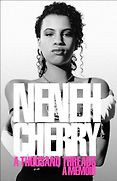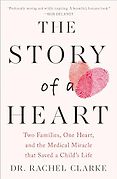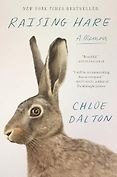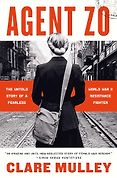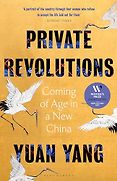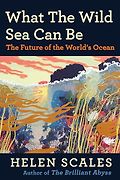The Women’s Prize for Nonfiction is still a relatively new prize. Perhaps you might talk us through its aims and the type of book you are seeking to reward.
This is the second year of the Women’s Prize for Nonfiction. We are the younger sister of the Women’s Prize for Fiction, which is celebrating its 30th anniversary this year. The purpose of it is to platform women’s brilliant writing—because when you look at the stats, during every part of the publishing process, from commissioning and advances to publicity and prizes, there are inequities when it comes to women writers. So many of the writers we are talking about are experts in their field, and their voices absolutely should be heard.
When we, the judges, were looking at the books—and we read about 150, both those submitted by publishers and books that we called in—we were looking for really exceptional writing, as you would expect, but also originality and quality of research. We also wanted books that could be read by lots of people, that weren’t too academic. But, really, the guiding question for us was, would these books be read in, say, thirty years time? I would say that all of the books on this shortlist absolutely will be.
There’s an incredible range of style and topics. Shall we start by looking at Neneh Cherry’s memoir, A Thousand Threads? Perhaps you could give us a quick introduction and then explain why the judges feel it to be one of the best nonfiction books of 2025.
I don’t know about you, but I remember watching Neneh Cherry doing ‘Buffalo Stance’ on Top of the Pops while pregnant and thinking she was so cool. She’s a well known singer, but this is her first book. It’s the story of her life, but it’s so much more than that. It’s such a beautiful meditation on so many things, on family, on motherhood, on belonging, on friendship and love, but also some really difficult moments.
She talks about a sexual assault, about her experiences of racism. She has dealt with a lot of things in her life, and yet somehow it comes together in this beautiful elegy. We were, all of us, completely captured by it. It’s complex in terms of the themes she talks about, but never feels that way. And there is a huge amount of warmth and honesty and integrity in the way she writes. It’s also a great look at the sweep of jazz music, which is something I wasn’t expecting, because that is the background to her life—through her father, but also her stepfather.
It’s a remarkable debut, but also the story of a remarkable life.
We don’t normally see, quote-unquote, ‘celebrity memoirs’ on prize lists.
I don’t think it’s a celebrity memoir. I mean, she is a celebrity. But she’s also an excellent writer. That’s why she is on the shortlist, for the strength of her writing. She absolutely earns her place, and I really hope that she will go on to write more.
Brilliant. Next on the list is Rachel Clarke’s The Story of a Heart, a book that charts the tragic, real-life case of organ donation in children.
Rachel Clarke is a palliative care doctor. Here, she documents the story of Keira, a nine-year-old girl who has a catastrophic injury, and her parents, who have to make the unbearable decision in the midst of their grief of what to do with her heart. Because there’s a little boy who desperately needs the heart, and they give the ultimate gift—they give this heart to the little boy and they save his life.
I cried throughout reading this book. So did a lot of my fellow judges. And there’s such dignity in how she deals with the subject matter, and in the behaviour of both sets of parents. There is also dignity in the way she talks about the medical staff.
This is not the kind of book in which the surgeon takes all the credit. It’s about the goodness of people who work in the NHS: the porters, the ambulance drivers, the nurses doing extra hours on their overnight shifts. And into that she very unobtrusively weaves in the medical history of transplant surgery, which really elevates the book.
This is a really beautiful book that is structured extremely cleverly. It shows the fragility of life, but also the generosity of life. Keira carries on living in this little boy, Max.
It sounds like a book that deserves a wide audience. Next, let’s talk about Chloe Dalton’s Raising Hare. It’s been something of a phenomenon, here in the UK. I see this book everywhere. Talk us through it?
Raising Hare is quite a magical story of a woman who had a pretty full life in politics. During lockdown, she was in the countryside, and she developed a relationship with a hare, which is an animal that is not domesticated. She finds it injured and brings this leveret home to care for it.
It’s a story about Dalton’s relationship with the leveret, and a very deep contemplation about our connection to the natural world. It’s written with enormous grace and gentleness. It’s a slow book, that is profound, and I think it moved all of us, while raising some important questions about how we interact with the natural world, and the effect of humans on the natural world.
It’s a book that really stayed with us, and I think about it a lot still. So I’m not surprised that it is doing very well. It’s still on bestseller lists.
Do you see it as fitting into that grand tradition of British animal writing? I suppose I’m thinking of Gavin Maxwell and his otters, H is for Hawk, Featherhood, Esther Woolfson’s Corvus…
I wouldn’t say that’s a particularly British thing. For me, this was about a moment during lockdown where the world slowed down and the writer had time to think about things deeply in a way we don’t, normally. The way she describes, so tenderly their relationship, is captivating and touching.
There are wonderful details, like the leveret giving birth behind her curtain. It really draws you in, but at the same time she has to let it go—this is not a domesticated animal. We must respect the hare, and the natural world.
I’d like us to discuss Claire Mulley’s Agent Zo: The Untold Story of a Fearless World War II Resistance Fighter.
This is really an incredible story. Mulley has done an extraordinary service in bringing the story of Elzbieta Zawacka into new recognition. She was a resistance fighter during the Second World War. She came to London from Warsaw, where she was secretly trained in the British countryside. Then she joined the Polish elite special forces and was parachuted behind enemy lines into Nazi-occupied Poland, where she was hunted by the Gestapo and was part of the Warsaw Uprising and the liberation of Poland.
You can’t quite believe that you don’t already know this story, or that it hasn’t been made into a film. Mulley’s extraordinary research has brought this historical figure back into the public eye.
It does sound like the basis of a brilliant movie. What fertile ground. Do you see part of the Women’s Prizes’ function as telling women’s stories? Or is it only about women’s writing, on any subject?
Often women’s stories have been overlooked in history, and women are now trying to reclaim these stories. I don’t think the prize is exclusively about unearthing untold female stories, although there are quite a lot of female stories that have not yet been told.
Can we look at Helen Scales’ book next? This is What the Wild Sea Can Be. She’s a two–time Five Books interviewee.
Scales is a marine biologist, she’s really well known, and she has written a remarkable book that’s exploring the future of the ocean, as well as a deep history of the ocean. She goes back to prehistoric ocean ecology, as well us telling us about the current threats—of which there are many, and have been widely discussed.
I think what’s remarkable about this book is that it’s really hopeful. This is a time where, you can feel quite depressed about the state of the climate and what it is doing to the natural world, including—and especially, one could argue—to the oceans.
She gives a manifesto of how things could change, and how we can still protect reserves and regenerate seagrass meadows, kept forests, and coral reefs. Having that manifesto is very helpful to a reader.
It’s a forensic look at what has gone wrong and could go wrong, but also how we could find our way out of this and protect our oceans.
Finally we come to Private Revolutions: Coming of Age in a New China, by Yuan Yang, the first Chinese-born British MP. She tells the stories of four different Chinese women.
Yuan Yang, who was the FT’s China correspondent before that, was born in 1990, and she looks at four women born around the same time—the end of the 1980s and beginning of the 1990s. These women tell the story of a very different China to the one we are used to hearing about. It’s the other side of the economic miracle. These are women who have dreams that might appear modest, but are quietly revolutionary—like going to university rather than raising pigs, or escaping the village to work on a factory floor.
Yang followed these women and what she calls their “private revolutions” against increasing state censorship and the clamping down on their lives. You realise that, for these women, trying to make a good life in modern China is really hard. There are so many obstacles that they face, but they are resourceful, resolute and inspiring in the choices they make. It’s an eye-opening insight into the lives of young women who rarely make the headlines and how they navigate the system.
Yang is a sensitive and observant writer, and holds their stories with great care and honesty and expertly weaves them all together. I was really taken by this book, and how Yang shows us China through the eyes and lives of these four women.
Thank you. What an interesting shortlist. What would you say you’ve taken from the judging process more generally?
It made me realise that there are so many outstanding books by women, on a whole range of subjects, writers who are offering new ways of looking at some of the biggest issues of our time in original, nuanced ways and with immense authority. Books we need to read to make sense of the times we are living in, on a whole range of subjects. We should all be celebrating women’s writing.
Interview by Cal Flyn, Deputy Editor
May 14, 2025. Updated: December 12, 2025
Five Books aims to keep its book recommendations and interviews up to date. If you are the interviewee and would like to update your choice of books (or even just what you say about them) please email us at [email protected]
Five Books interviews are expensive to produce. If you've enjoyed this interview, please support us by donating a small amount.
